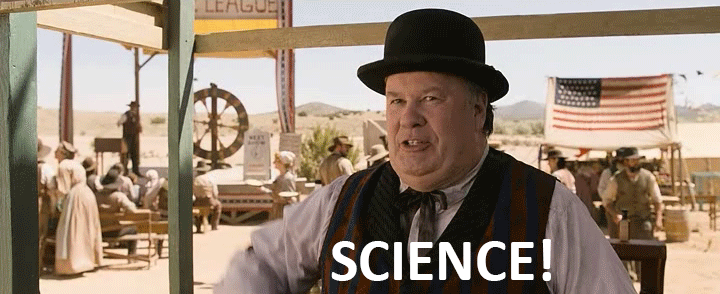Here is what science says about the need for trigger warnings
Here is what science says about the need for trigger warnings
Trigger warnings are pretty commonplace on the Internet, and for good reason. If you’re going through any sort of trauma or personal problems, having a heads up if a piece of writing material might be upsetting to you can give you enough pause to decide if you’d like to continue reading it or not.
However offline there seems to be a lot of debate about it, most recently with the University of Chicago dean of students John Ellison taking a hard stance against them in a letter to the student body, writing:
“We do not support so-called ‘trigger warnings,’ we do not cancel invited speakers because their topics might prove controversial, and we do not condone the creation of intellectual ‘safe spaces’ where individuals can retreat from ideas and perspectives at odds with their own.”
His letter understandably created a lot of discussion and controversy on both sides of the topic. Are schools responsible for giving trigger warnings with possibly upsetting material, or should students accept that they could potentially run into triggering material in academia, and that they might not get a heads up?
Interestingly enough, several methods of PTSD recovery have shown that it might be more harmful to ‘avoid’ triggers in the long run.
For example, Edna B. Foa, professor of clinical psychology at the University of Pennsylvania, who developed prolonged exposure therapy, or PET for short, a highly effective treatment for PTSD, stresses to Slate that engaging with triggers will help lessen their power over time.
Foa states, “If people go through a trauma and do not recover, they are suffering, they are dysfunctional, and the way we know how to reduce symptoms and improve their quality of life is to talk about the event, to process it…If people are saying, ‘I don’t want to think about the event because it upsets me,’ that’s probably the reason they didn’t get better.”
PET involves ‘imaginal exposure’ and ‘in vivio exposure’, the first one entailing recounting the traumatic event out loud over and over again until the words lose their meaning, and the second involves reenacting it. Foa goes on to say that experiencing triggers is much like revisiting a book of memories and being forced to read a page you don’t want to. You can close it with great effort, but you’ll never have control over when you see the page or not. By familiarizing yourself with the trauma you will eventually be able to control how and when you visit the memory book, and the ‘triggers’ will no longer be considered ‘triggering’.
She, however, points out that treatment for PTSD should be something that someone chooses to do with a therapist, and not something that one is forced to recount with a professor in a room full of peers in a grade dependent situation.
It is definitely an interesting way of looking at trigger warnings. However, most people would agree whether you’re ready to face your own personal trauma and triggers is completely up to you, and you should not be doing it for anyone else, or in a situation that is outside of the realm of traditional therapy.
Personally as someone who is dealing with a trigger of my own (I have a parent in jail) I really appreciate the ability to choose what media I consume and to have a few seconds heads up to decide whether I feel ready to engage in an article, TV show, or anything else that could deal with the subject of incarceration. I can weirdly handle watching things like Orange is the New Black, but if someone randomly makes an off hand comment about prison, I’ll always feel an involuntary pang of hurt.
The upshot is that everyone’s own personal experience is different and it is really hard to make blanket statements about what is right or wrong for all people when our experiences are so unique and specific. However this is definitely an interesting and important way to look at triggers.
The post Here is what science says about the need for trigger warnings appeared first on HelloGiggles.





